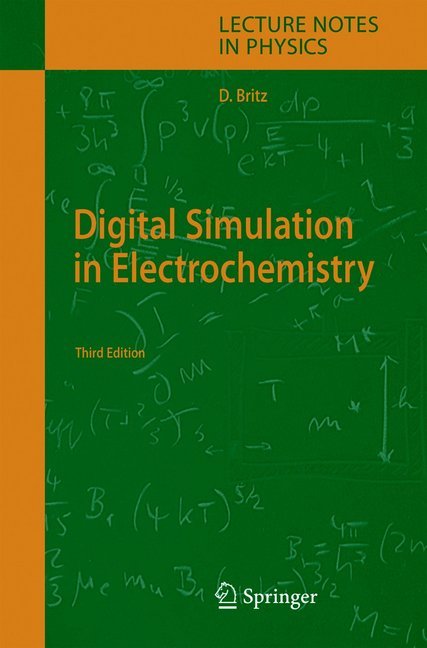
Zustellung: Sa, 04.01. - Di, 07.01.25
Versand in 4 Tagen
VersandkostenfreiBestellen & in Filiale abholen:
This book is an extensive revision of the earlier 2nd Edition with the same title, of 1988. The book has been rewritten in, I hope, a much more did- tic manner. Subjects such as discretisations or methods for solving ordinary di? erential equations are prepared carefully in early chapters, and assumed in later chapters, so that there is clearer focus on the methods for partial di? erential equations. There are many new examples, and all programs are inFortran90/95, whichallows amuchclearerprogrammingstylethanearlier Fortran versions. In the years since the 2nd Edition, much has happened in electrochemical digital simulation. Problems that ten years ago seemed insurmountable have been solved, such as the thin reaction layer formed by very fast homogeneous reactions, or sets of coupled reactions. Two-dimensional simulations are now commonplace, and with the help of unequal intervals, conformal maps and sparse matrix methods, these too can be solved within a reasonable time. Techniques have been developed that make simulation much more e? cient, so that accurate results can be achieved in a short computing time. Stable higher-order methods have been adapted to the electrochemical context. The book is accompanied (on the webpage www. springerlink. com/ openurl. asp? genre=issue&issn=1616-6361&volume=666) by a number of - ample procedures and programs, all in Fortran 90/95. These have all been veri? edasfaraspossible. Whilesomeerrorsmightremain, theyarehopefully very few.
Inhaltsverzeichnis
Basic Equations. - Approximations to Derivatives. - Ordinary Differential Equations. - The Explicit Method. - Boundary Conditions. - Unequal Intervals. - The Commonly Used Implicit Methods. - Other Methods. - Adsorption. - Effects Due to Uncompensated Resistance and Capacitance. - Two-Dimensional Systems. - Convection. - Performance. - Programming. - Simulation Packages. - Tables and Formulae. - Some Mathematical Proofs. - Procedure and Program Examples. - References. - Electronic Supplementary Material.
Produktdetails
Erscheinungsdatum
22. Oktober 2010
Sprache
englisch
Auflage
Softcover reprint of hardcover 3rd ed. 2005
Seitenanzahl
338
Reihe
Lecture Notes in Physics
Autor/Autorin
Dieter Britz
Verlag/Hersteller
Produktart
kartoniert
Abbildungen
XIII, 338 p. 252 illus.
Gewicht
540 g
Größe (L/B/H)
19/155/235 mm
ISBN
9783642063077
Entdecken Sie mehr
Bewertungen
0 Bewertungen
Es wurden noch keine Bewertungen abgegeben. Schreiben Sie die erste Bewertung zu "Digital Simulation in Electrochemistry" und helfen Sie damit anderen bei der Kaufentscheidung.










